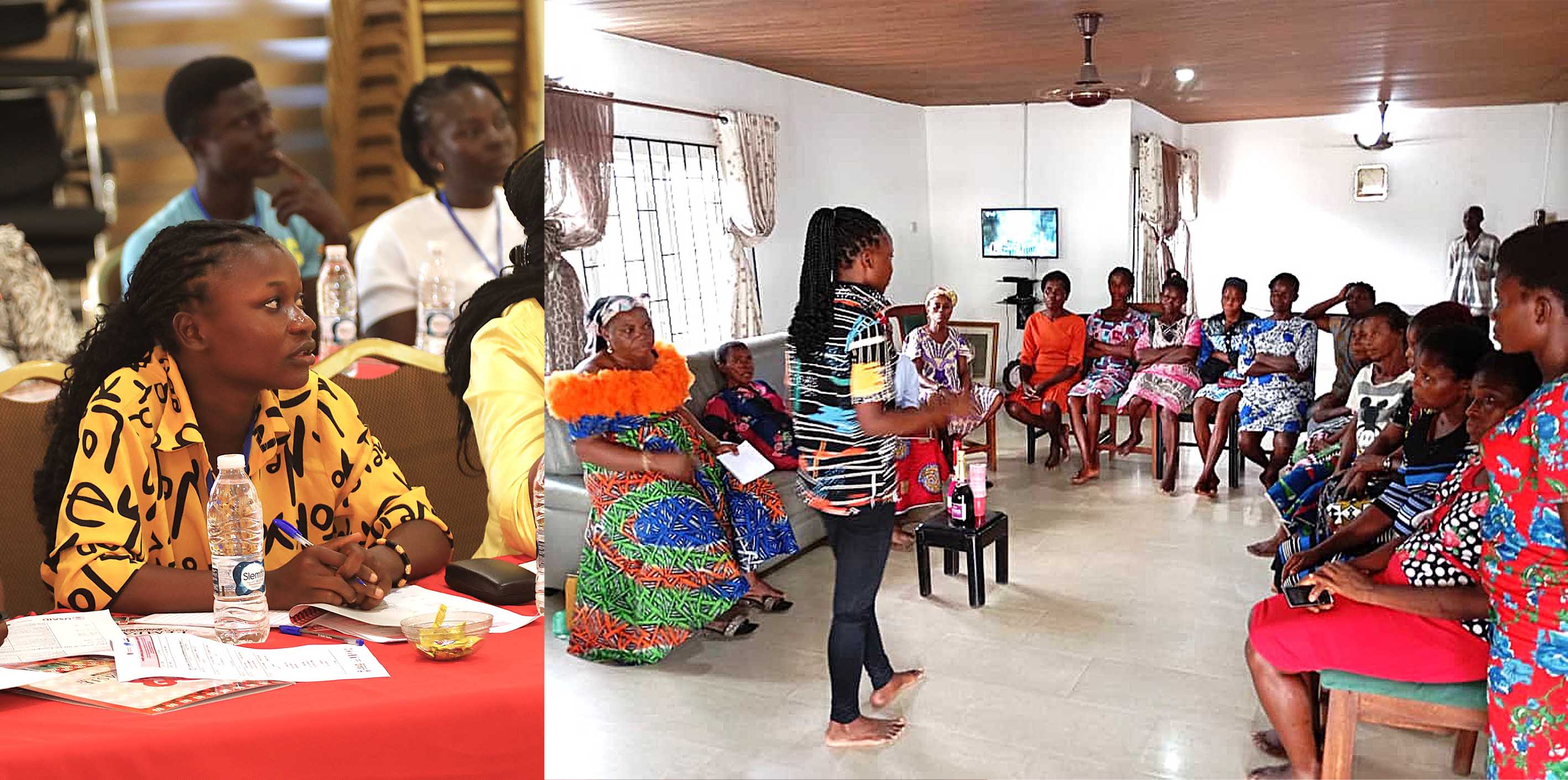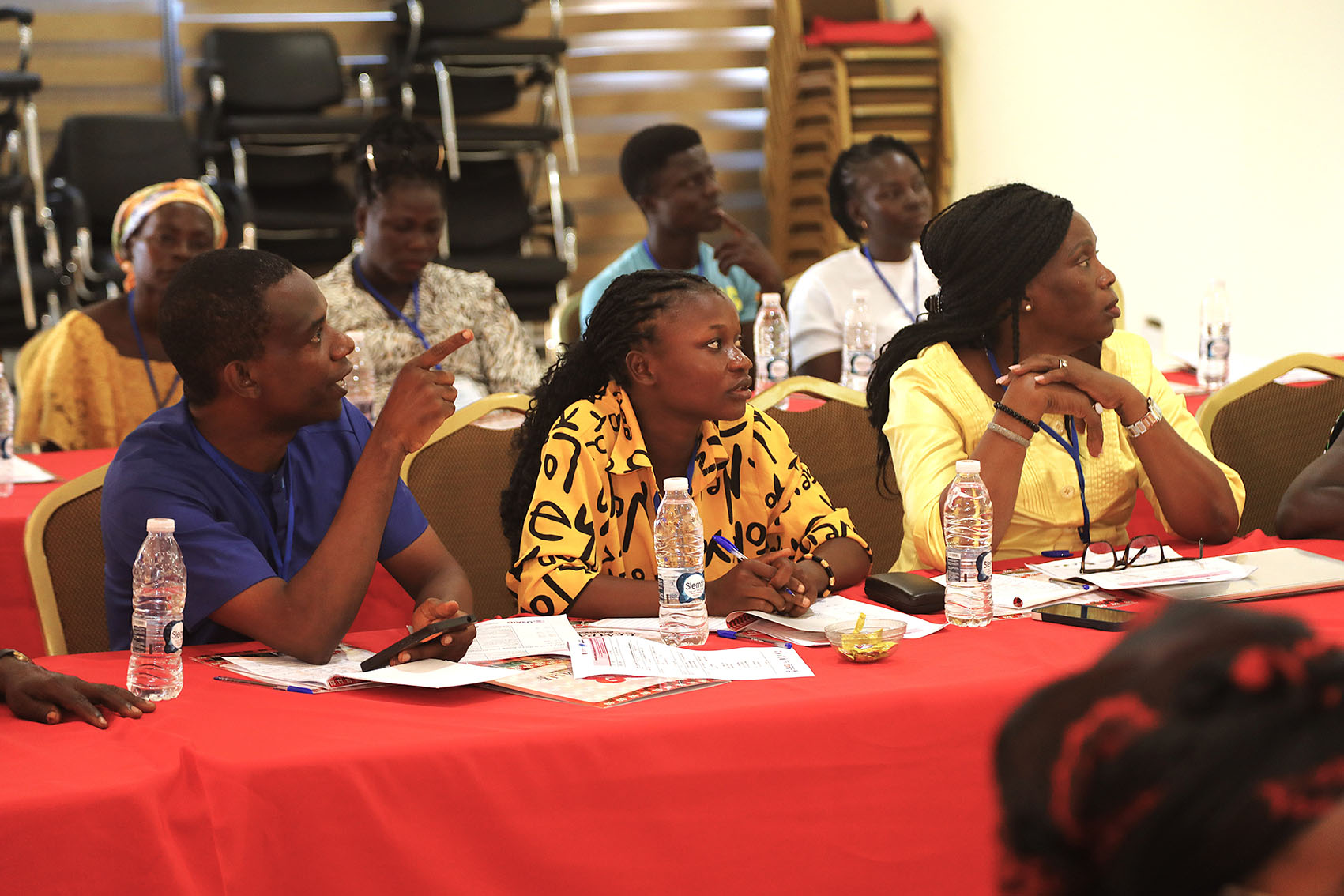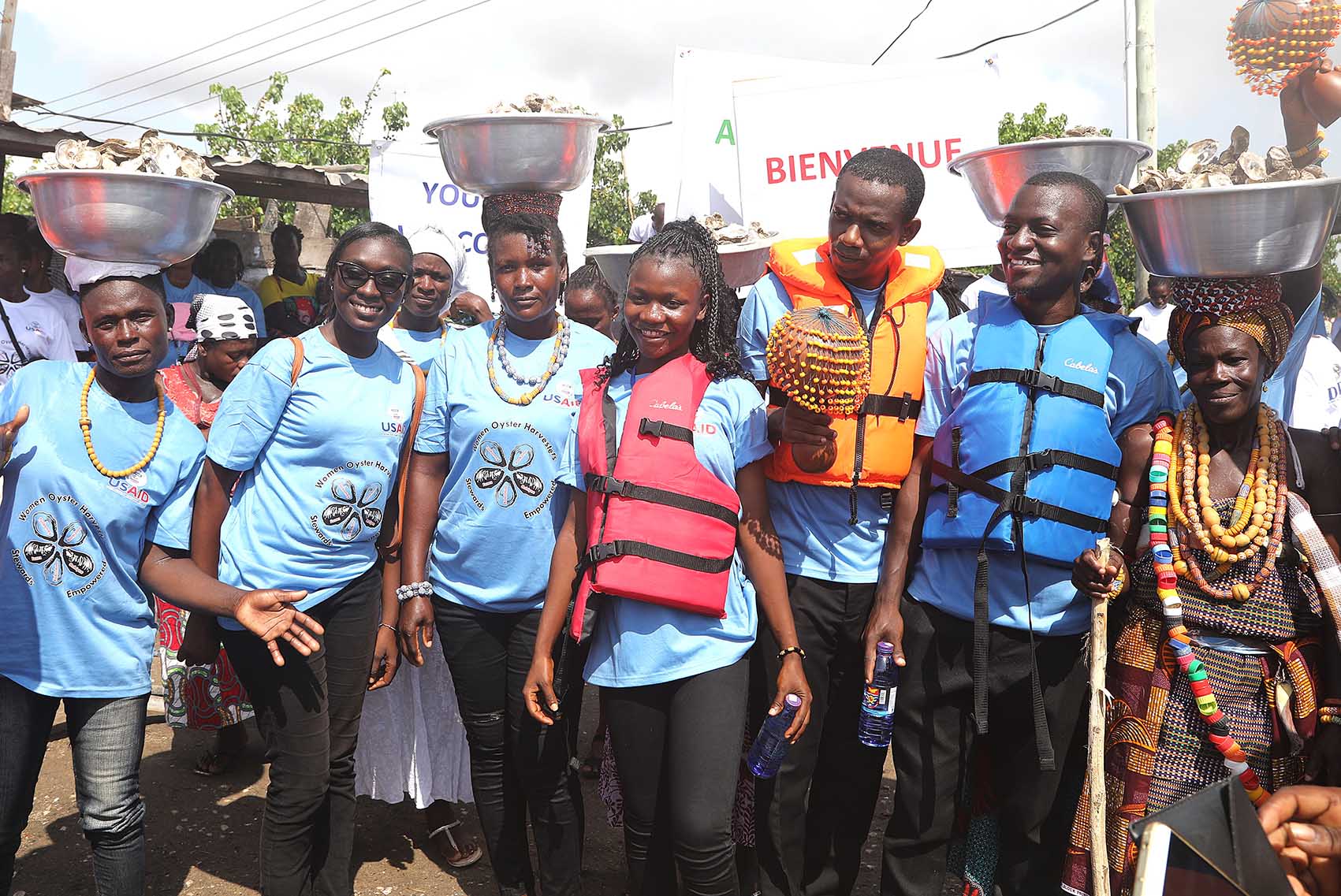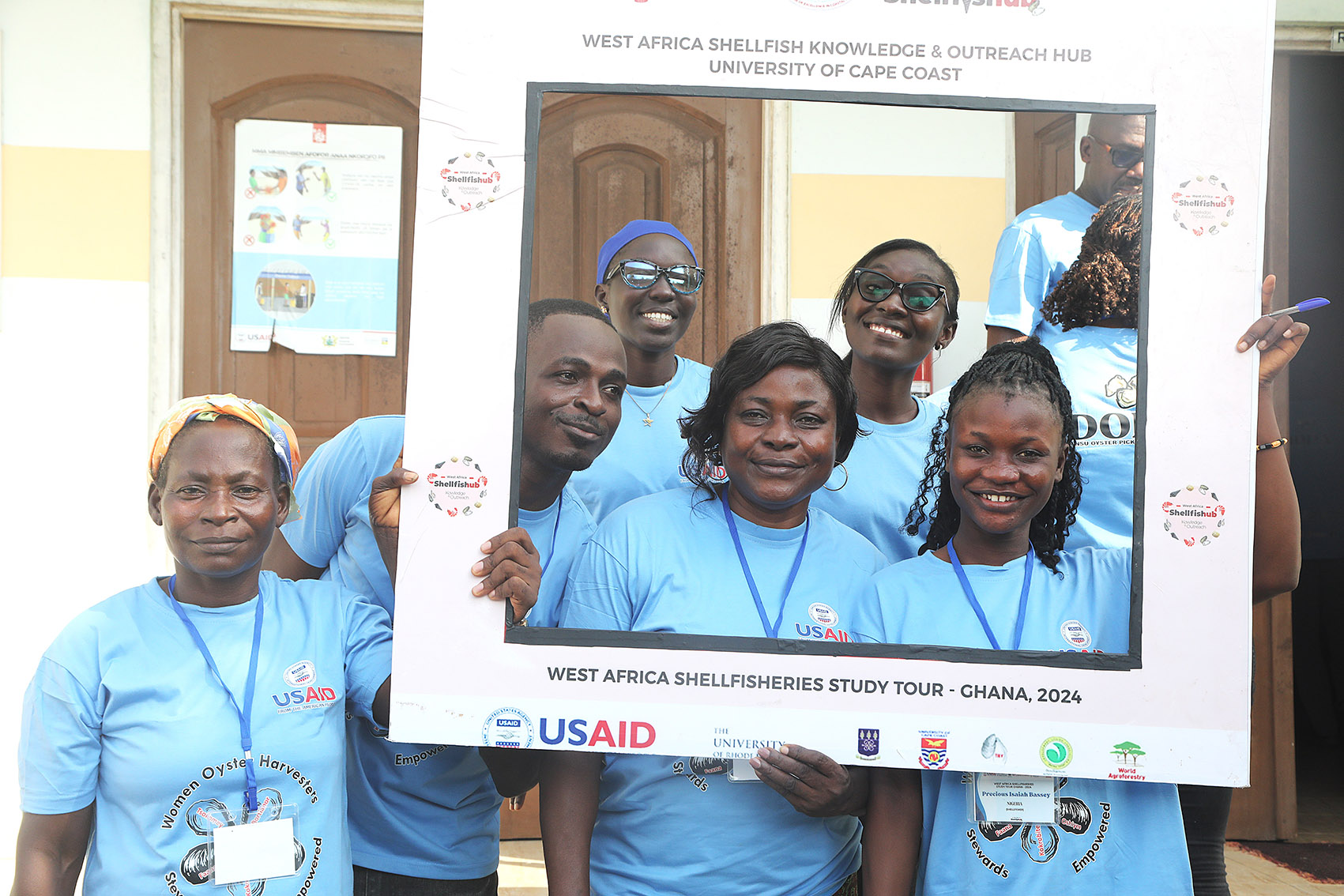Country
Profiles
Country
Networks
Country
Associations
- Date
Grooming Tomorrow’s Leaders: How Precious, a Young Nigerian Woman, is Pioneering Change in West Africa’s Shellfisheries
By WA Shellfish Hub
At just 19 years old, Precious Isaiah Bassey is already charting a path toward becoming one of West Africa’s future leaders in sustainable shellfisheries management. Hailing from Ikot Abasi in Akwa Ibom State, Nigeria, Precious represents a new generation of changemakers; nurtured early, inspired by tradition, and driven by a bold vision for community transformation.
Her journey began at home, where she grew up beside the creeks, watching her mother lead a local women’s shellfishers’ association. Her mother was more than a harvester. She was an advocate, a voice for women’s rights in small-scale fisheries, and a fierce protector of coastal livelihoods. When the opportunity came for someone from the community to join the West Africa Shellfisheries Exchange Study Tour in Ghana in October 2024, her mother didn’t hesitate. She sent Precious, a choice that would change both their lives.
Held in Cape Coast and Accra, the study tour brought together community leaders, fisheries experts, and women harvesters from across the region. There, Precious was immersed in the rich experiences of Ghanaian and Gambian women who had turned the tide in their communities through co-management, habitat restoration, and entrepreneurship. She visited the Densu Oyster Pickers Association (DOPA) in Ghana and the TRY Oyster Women’s Association in The Gambia. DOPA and TRY are trailblazers who have built powerful cooperatives, restored mangroves, and created new income streams through value-added shellfish products in their communities.
For Precious, this experience was both inspiring and transformative. She returned to Ikot Abasi with a renewed sense of purpose and a mission to act. Gathering the women shellfishers in her community, she shared stories of innovation and empowerment from her West African sisters. She spoke about sustainable harvesting, the power of unity through cooperatives, and the untapped potential of value addition. Her energy was infectious. Where uncertainty prevailed, there appeared a renewed vision. The women began to imagine a new future, one built on collaboration, resilience, and sustainable practices.
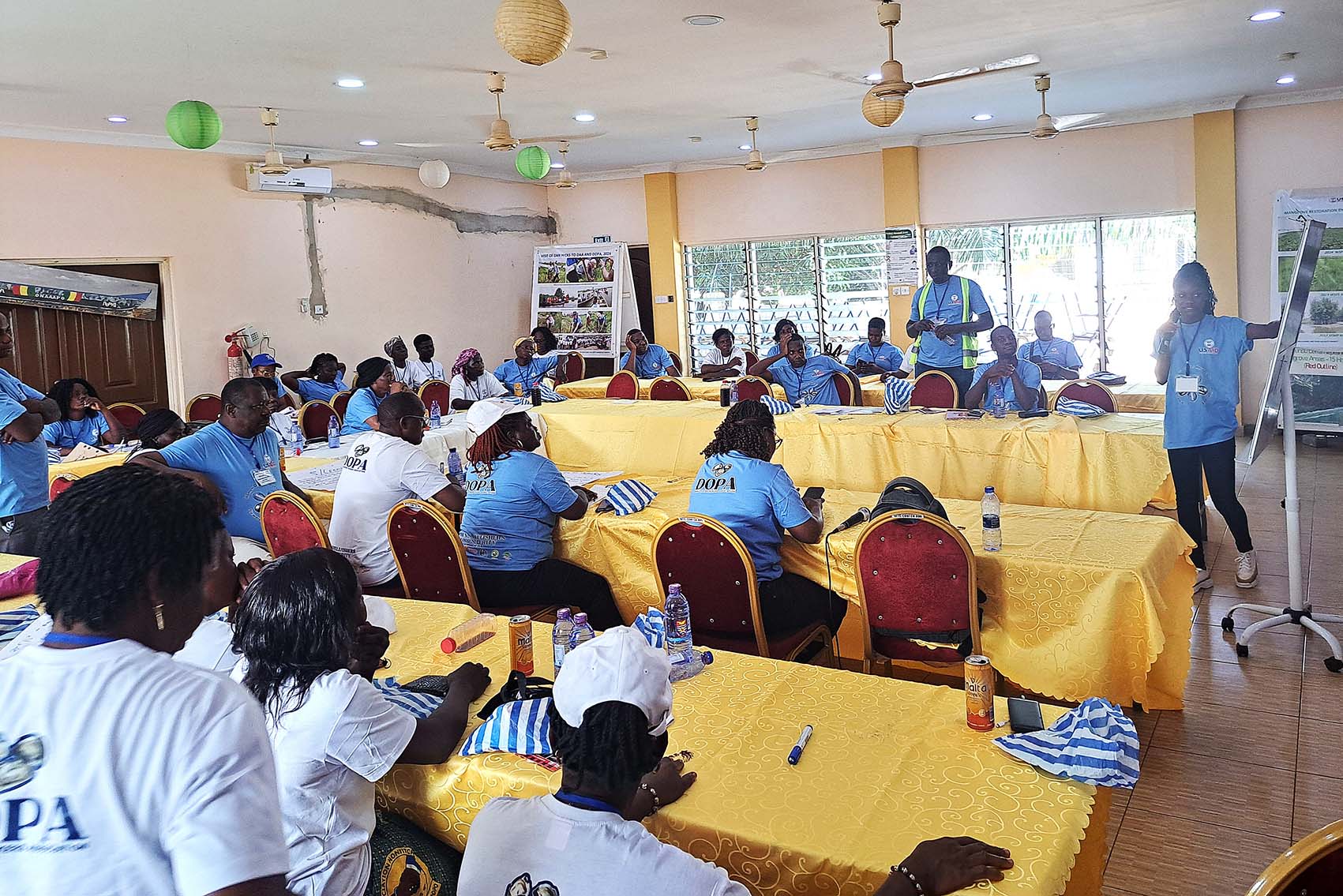
Precious’s leadership has not stopped at advocacy. Determined to gain the technical knowledge needed to lead real change, she has enrolled in a Fisheries and Aquaculture program at Akwa Ibom State University. Her ambition is clear: to become a force for sustainable development in Nigeria’s small-scale shellfisheries sector. She wants to ensure that women are not just included in decision-making but are leading the charge for independently restoring ecosystems, improving livelihoods, and safeguarding coastal communities from climate and economic vulnerability.
Precious’s story is more than a personal journey. It is a source of profound hope for the future of West Africa’s shellfisheries sector. Her early exposure to community leadership, her cross-border learning experience, and her commitment to education are exactly the ingredients needed to cultivate the next generation of fisheries leaders. Across the region, programmes like the Shellfisheries Peer Learning Exchange Study Tour led by the West Africa Shellfish Hub at the Centre for Coastal Management (Africa Centre of Excellence in Coastal Resilience), University of Cape Coast, are planting the seeds of long-term change.
The Shellfish Hub is identifying and investing in young leaders like Precious to carry forward the torch of co-management, conservation, and community empowerment. Precious exemplifies what is possible when tradition meets opportunity, when knowledge crosses borders, and when young women are empowered to lead.

